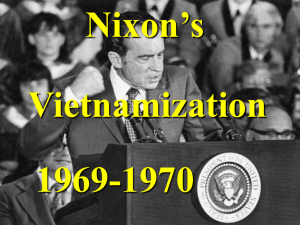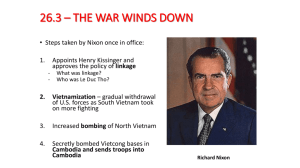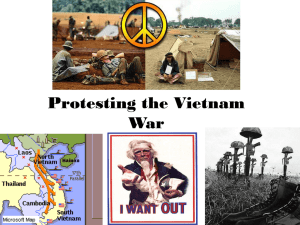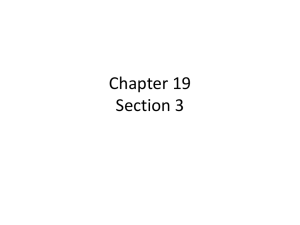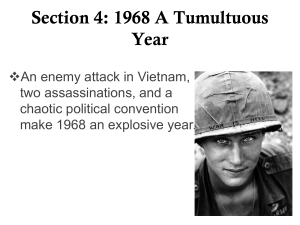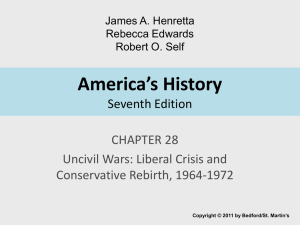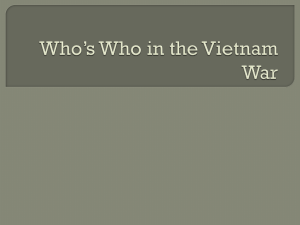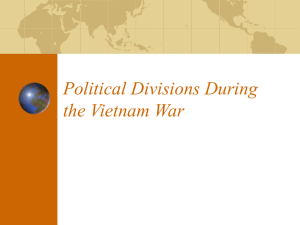30-5: The End of the War and its Legacy - Wood
advertisement
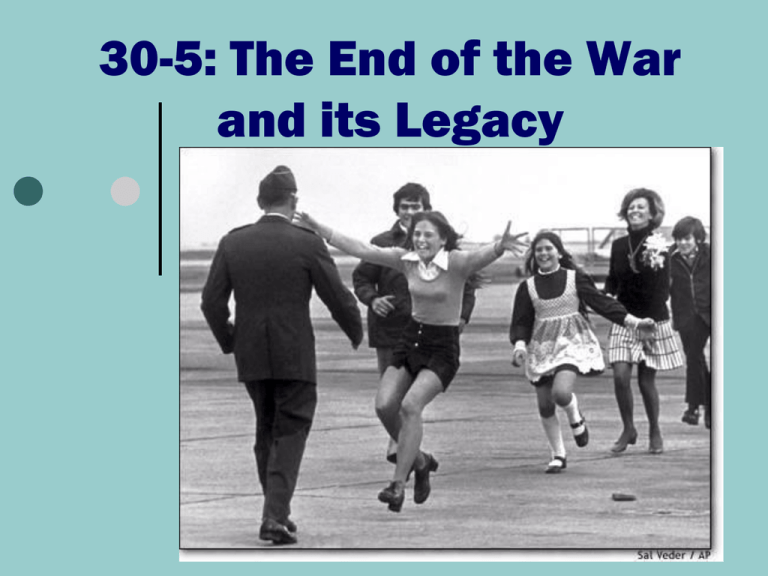
30-5: The End of the War and its Legacy 1. Nixon adopts a policy of Vietnamization To end U.S. involvement in Vietnam To replace U.S. troops with South Vietnamese troops – to establish “peace with honor” On Back: Nixon appeals to the “Silent Majority” to support Vietnamization (those Americans who Nixon believed silently supported his policies in Vietnam) 2. My Lai massacre shocks Americans 100 innocent Vietnamese murdered by U.S. soldiers – This event further turns Americans away from the war 3. Nixon orders invasion of Cambodia Purpose: To remove Vietnamese and Vietcong supply centers from Cambodia (Many Americans see this act as an escalation of the war and are angry) 4. First Student Strike in U.S. History Occurs Purpose: To protest the invasion of Cambodia 5. Congress repeals the Tonkin Gulf Resolution Purpose: To protest Nixon’s bombing and invasion of Cambodia without first notifying Congress – This act is an attempt by Congress to gain greater control over U.S. policy in Vietnam. 6. The “Christmas bombings” take place Purpose: To. Force a negotiated peace settlement Massive 11 day air campaign in December of 1972 that Nixon unleashed in an attempt to make North and South Vietnam sit down at the bargaining table and begin negotiating an end to the war in Vietnam 7. South Vietnam surrenders to North Vietnam North Vietnam’s full scale invasion of South Vietnam and the capture of Saigon leads to the South’s surrender No U.S. troops were there to prevent the North’s victory 8. Vietnam veterans receive a cold homecoming At the time, Americans were very torn and bitter about the war and did not honor our returning soldiers as they should have been In more recent years, Americans have tried to make up for our ill treatment of our Vietnam Veterans 9. Cambodia erupts in Civil War After the U.S. invasion of Cambodia (On Back) the Khmer Rouge- a Communist group takes over Cambodia and purges all intellectuals Khmer Rouge with a prisoner 10. Congress passes the War Powers Act To curb the President’s war making power Presidents must notify congress within 48 hours of committing troops to a foreign nation No troops can remain in a foreign nations after 90 days without approval by Congress. This act = attempt by congress to keep presidents from having full reign to conduct a war again. 11. The draft is abolished The draft had become very unpopular 12. Many Americans lose faith in their government The publication of the Pentagon Papers On Back: (Government documents that showed the govt. had no exit plan for Vietnam) reveals Johnson’s Administration was lying about the war My Lai Massacre leads some Americans to view the U.S. military as “baby killers” Campus turmoil (Kent State killings) Nixon’s administration is found corrupt and that the president lied about the war during the Watergate Scandal 12. Many Americans lose faith in their government The publication of the Pentagon Papers On Back: (Government documents that showed the govt. had no exit plan for Vietnam) reveals Johnson’s Administration was lying about the war My Lai Massacre leads some Americans to view the U.S. military as “baby killers” Campus turmoil (Kent State killings) Nixon’s administration is found corrupt and that the president lied about the war during the Watergate Scandal Henry Kissinger Nixon advisor who helped negotiate and end to the war.
